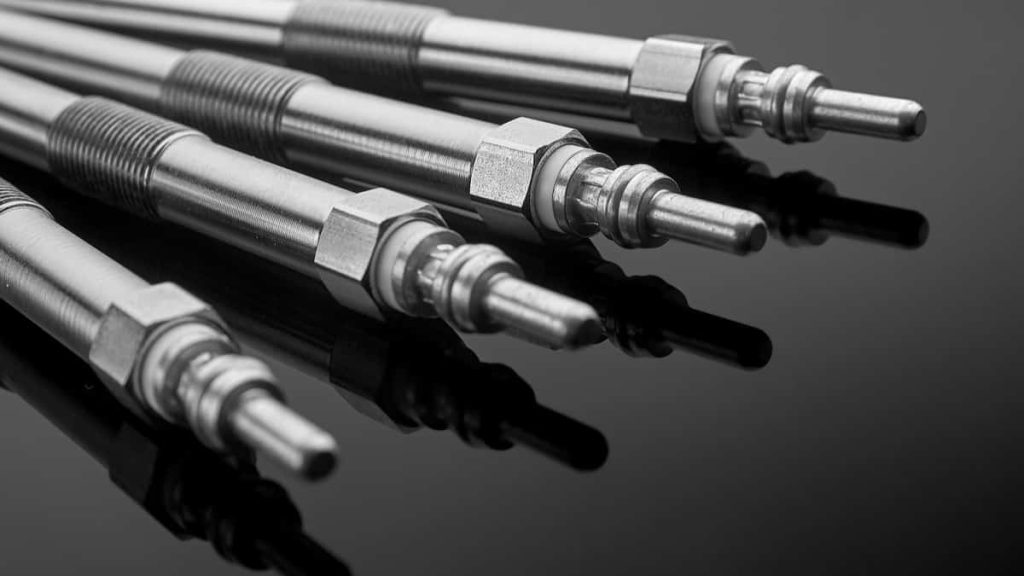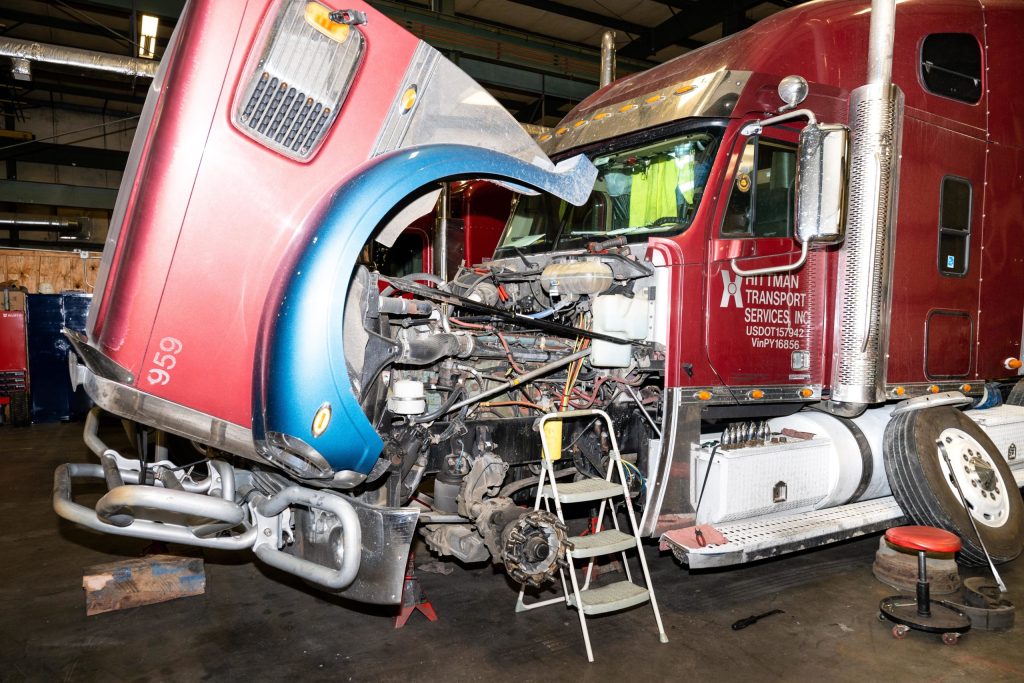The Top 5 Reasons Your Diesel Truck Won’t Start (And How to Fix Them)
Diesel trucks are known for their power and durability, but like any vehicle, they can experience starting issues from time to time. Understanding the common issues that diesel truck owners face when starting their vehicles can help you diagnose and resolve these problems quickly and effectively.
Dead Battery: Checking and Replacing Your Battery
One of the most common issues with diesel truck starting is a dead battery. Symptoms of a dead battery include a slow cranking sound when you turn the key, dim headlights, and difficulty starting the engine. To check your battery’s voltage and health, you can use a multimeter to measure the voltage at the battery terminals. A healthy battery should have a voltage reading of around 12.6 volts or higher.
To maintain your battery’s health, it’s important to keep it clean and free from corrosion. Regularly inspect the battery terminals for any signs of corrosion and clean them with a mixture of baking soda and water if necessary. Additionally, make sure to turn off all electrical accessories when the engine is not running to prevent unnecessary drain on the battery.
If your battery is consistently failing to hold a charge or is more than three years old, it may be time to replace it. Look for a battery that meets the specifications recommended by your vehicle’s manufacturer and consider investing in a high-quality battery for optimal performance and longevity.
Fuel System Problems: Inspecting and Cleaning Your Fuel Filter
Another common issue that can affect diesel truck starting is problems with the fuel system. Symptoms of fuel system problems include difficulty starting the engine, rough idling, and decreased fuel efficiency. The fuel filter plays a crucial role in preventing contaminants from entering the engine and should be inspected and cleaned regularly.
To inspect and clean your fuel filter, locate it in your vehicle’s engine compartment or along the fuel line. Remove the filter and inspect it for any signs of clogging or damage. If the filter appears dirty or clogged, it should be cleaned or replaced. Cleaning the fuel filter involves rinsing it with a solvent or using compressed air to blow out any debris.
It’s important to replace your fuel filter according to the manufacturer’s recommendations, as a clogged or dirty filter can lead to engine damage and poor performance. Generally, fuel filters should be replaced every 10,000 to 15,000 miles, but this can vary depending on your driving conditions and the quality of fuel you use.
Glow Plug Failure: Testing and Replacing Your Glow Plugs

Glow plug failure is another common issue that can affect diesel truck starting, especially in colder weather. Glow plugs are responsible for heating the combustion chamber and helping the engine start. Symptoms of glow plug failure include difficulty starting the engine, rough idling, and excessive smoke from the exhaust.
To test your glow plugs, you can use a multimeter to measure their resistance. A healthy glow plug should have a resistance reading within the manufacturer’s specifications. If any of the glow plugs fail the resistance test, they should be replaced.
Replacing glow plugs involves removing the old plugs and installing new ones in their place. It’s important to use high-quality glow plugs that are compatible with your vehicle’s make and model. Additionally, make sure to follow the manufacturer’s instructions for installing the glow plugs properly.
Starter Motor Issues: Diagnosing and Repairing Your Starter Motor
Starter motor issues can also cause problems with diesel truck starting. Symptoms of starter motor issues include a clicking sound when you turn the key, a grinding noise, or no response at all when you try to start the engine. The starter motor is responsible for turning over the engine and getting it started.
To diagnose starter motor issues, you can start by checking the battery voltage and connections to ensure they are in good condition. If the battery is fully charged and the connections are secure, but the starter motor still does not engage, it may be faulty and in need of repair or replacement.
Repairing a faulty starter motor typically involves removing it from the vehicle and inspecting it for any signs of damage or wear. In some cases, the issue may be a faulty solenoid or a worn-out gear. If the starter motor cannot be repaired, it will need to be replaced with a new one.
Ignition Switch Problems: Troubleshooting and Replacing Your Ignition Switch
Ignition switch problems can also prevent your diesel truck from starting. Symptoms of ignition switch problems include difficulty turning the key, no response when you turn the key, or intermittent starting issues. The ignition switch is responsible for sending power to the starter motor and other electrical components.
To troubleshoot ignition switch problems, you can start by checking the battery voltage and connections to ensure they are in good condition. If the battery is fully charged and the connections are secure, but there is still no response when you turn the key, it may indicate a faulty ignition switch.
Replacing an ignition switch typically involves removing the old switch and installing a new one in its place. It’s important to use a high-quality ignition switch that is compatible with your vehicle’s make and model. Additionally, make sure to follow the manufacturer’s instructions for installing the ignition switch properly.
Air in Fuel Lines: Bleeding and Flushing Your Fuel Lines
Air in the fuel lines can also cause starting issues in diesel trucks. Symptoms of air in fuel lines include difficulty starting the engine, rough idling, and decreased fuel efficiency. Properly functioning fuel lines are crucial for delivering fuel to the engine and ensuring optimal performance.
To bleed and flush your fuel lines, you can start by locating the fuel filter or fuel pump that has a bleeder valve. Open the valve and allow any air to escape until a steady stream of fuel is flowing. Repeat this process for each fuel line until all air is removed.
It’s important to bleed and flush your fuel lines regularly to prevent air from entering the system. This can be done as part of your regular maintenance routine or whenever you suspect there may be air in the fuel lines.
Low Compression: Identifying and Resolving Engine Compression Issues
Low compression can also cause starting issues in diesel trucks. Symptoms of low compression include difficulty starting the engine, decreased power and performance, and excessive smoke from the exhaust. Engine compression is crucial for proper combustion and engine performance.
To identify and resolve engine compression issues, you can start by performing a compression test using a compression gauge. This involves removing the glow plugs or injectors and screwing the compression gauge into the cylinder. Crank the engine several times and record the compression readings for each cylinder.
If the compression readings are significantly lower than the manufacturer’s specifications, it may indicate a problem with the piston rings, valves, or cylinder head gasket. Resolving engine compression issues typically involves repairing or replacing these components as necessary.
Clogged Injector Nozzles: Cleaning and Replacing Your Injector Nozzles

Clogged injector nozzles can also cause starting issues in diesel trucks. Symptoms of clogged injector nozzles include difficulty starting the engine, rough idling, decreased power and performance, and excessive smoke from the exhaust. Properly functioning injector nozzles are crucial for delivering fuel to the combustion chamber.
To clean and replace your injector nozzles, you can start by removing them from the engine and inspecting them for any signs of clogging or damage. If the nozzles appear dirty or clogged, they should be cleaned using a specialized injector cleaning solution or ultrasonic cleaner.
If cleaning the injector nozzles does not resolve the issue, they may need to be replaced. It’s important to use high-quality injector nozzles that are compatible with your vehicle’s make and model. Additionally, make sure to follow the manufacturer’s instructions for installing the injector nozzles properly.
Conclusion
In conclusion, understanding the common issues with diesel truck starting can help you diagnose and resolve these problems effectively. Regular maintenance is crucial for optimal performance and reliability. Here are some tips for maintaining your diesel truck’s health and preventing starting issues:
- Follow the manufacturer’s recommended maintenance schedule for oil changes, filter replacements, and other routine maintenance tasks.
- Use high-quality fuel and additives to prevent fuel system problems and keep your engine running smoothly.
- Keep your battery clean and free from corrosion, and replace it when necessary.
- Test and replace glow plugs, starter motors, ignition switches, and other components as needed.
- Regularly inspect and clean your fuel filter and injector nozzles to prevent clogs.
- Address any engine compression issues promptly to prevent further damage.
By following these tips and staying proactive with your diesel truck’s maintenance, you can ensure optimal performance and reliability for years to come.
